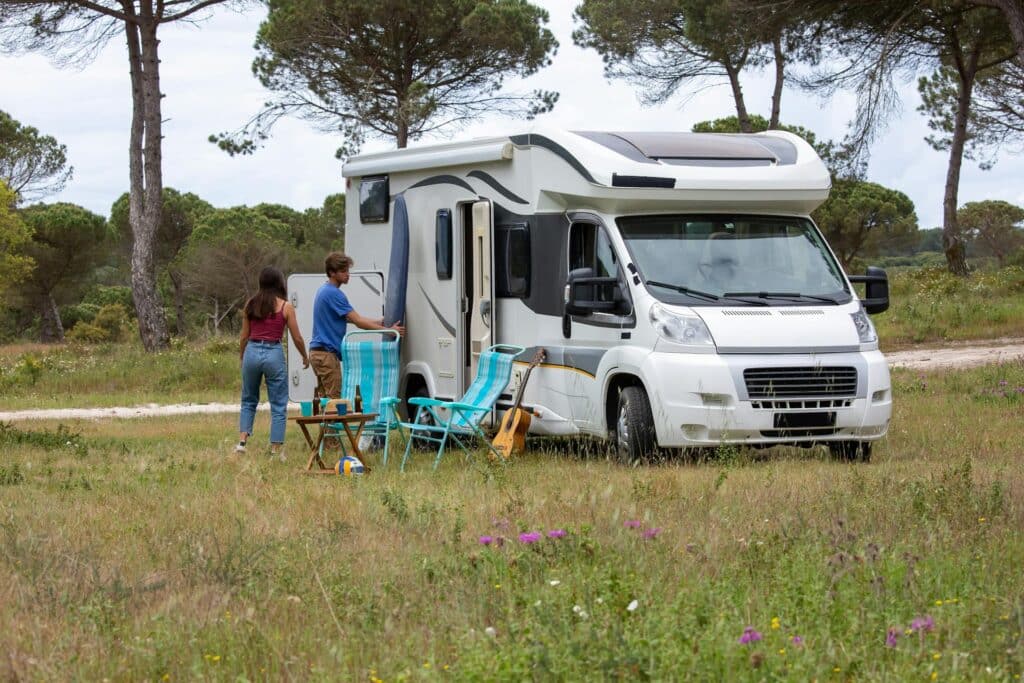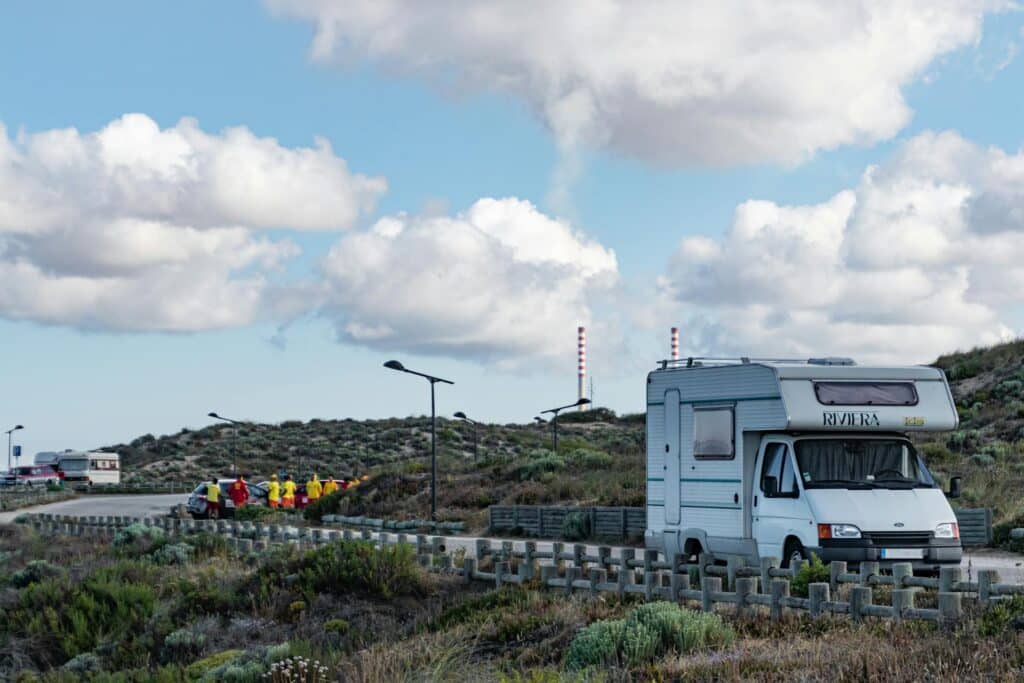Cost of RV Extended Warranty

When considering an RV extended warranty, the pressing question is: how much will it cost? The price hinges on your RV’s specifics—its model, age, and usage—as well as the type of coverage and the warranty provider’s credibility. This article cuts through the confusion, detailing the factors affecting the cost of RV extended warranty, helping you discern if the coverage aligns with your budget and brings genuine value to your travels.
Understanding the True Cost of RV Extended Warranty: Is It Worth Your Investment?
The cost of an RV extended warranty varies based on factors such as RV type, warranty coverage level, policy length, and usage frequency, with luxury, high-mileage models incurring the highest costs.
RV extended warranties can save you from expensive out-of-pocket repair costs, offering peace of mind, but they also come with notable exclusions, and deductible levels can significantly affect the warranty cost.
Choosing between RV dealerships and independent warranty companies for purchasing an extended warranty is important; dealerships often cost more, whereas independents offer competitive pricing without dealership markup.
Decoding RV Extended Warranty Pricing

Ever wondered why the cost of RV extended warranties differs so vastly? The answer lies in several factors, including:
- The type and model of your RV
- The level of warranty coverage
- Policy length
- How often you hit the road
So, let’s unpack these elements to help you understand RV extended warranty pricing.
Firstly, the type and model of your RV play a significant role in determining the RV warranty cost, as well as the RV extended warranty cost. Luxury models and those with high-quality components can drive up the cost. For instance, a short-term travel trailer may cost around $1,000, while a high-end, high mileage motorhome might set you back upwards of $20,000. More than just a price tag, it reflects the potential repair expenses associated with each type of RV.
However, the cost isn’t solely dependent on the RV type. The level of warranty coverage, policy length, and usage frequency also come into play. For instance, a comprehensive, long-term policy for an RV that’s frequently on the move will cost more than a basic, short-term policy for an RV used sparingly. Therefore, understanding these cost influencers can help you budget your RV extended warranty accurately.
Types of RVs and Their Impact on Warranty Cost
The type of RV you own can significantly impact the cost of your extended warranty. For instance, towable RVs like fifth wheels and travel trailers generally cost less to cover under extended warranties compared to motorhomes. The reason? They lack the expensive mechanical components such as an engine or transmission.
On the other hand, motorized RVs, with their combination of automobile and coach components, have higher extended warranty costs due to their overall complexity and potential for costly repairs. Additionally, older RVs and those with higher mileage typically have higher extended warranty costs because there’s a greater likelihood of needing repairs during the contract period.
So, when shopping for an extended RV warranty, remember: the type, age, and mileage of your RV can significantly influence the price you’ll pay.
Coverage Levels Defined
Now that you understand how the type of RV affects warranty costs, let’s delve into coverage levels. RV extended warranties come in two main types: exclusionary policies and listed component policies. But what’s the difference?
Exclusionary policies offer comprehensive coverage, covering almost all mechanical and electrical components except for specifically listed exclusions. They’re typically more expensive due to this comprehensive coverage. On the other hand, listed component policies tend to be less costly since they cover only specified parts and systems. Therefore, understanding these coverage levels can help you choose a warranty that provides adequate protection without blowing your budget.
Choosing the Right Warranty Provider
Choosing a reputable warranty provider is crucial for ensuring comprehensive coverage and reliability. Among RV extended warranty companies, Good Sam, Xtra Ride, and Wholesale Warranties are well-known players in the market, offering extensive coverage options. But how do you pick the right one for you?
Consider factors beyond just price, such as customer service, coverage specifics, and company reputation. For instance, a company that is backed by ‘A’ Rated Insurance Carriers can provide reliable and financially stable coverage. By thoroughly vetting your warranty provider, you can ensure you’re in good hands when unexpected repairs arise.
The Anatomy of an RV Extended Warranty

Now that we’ve decoded the pricing and chosen a reliable provider let’s explore the anatomy of an RV extended warranty. These policies are designed to provide coverage for most repair bills due to failure of mechanical components, systems, or appliances on an RV, beyond the manufacturer’s warranty.
Coverage is typically categorized as inclusionary, which lists all the components covered, and exclusionary, which covers everything except listed exclusions. These warranties typically cover repairs due to mechanical failure, including key RV elements such as slide-outs, furnaces, air conditioners, water heaters, and engines. Considering the average cost of RV repairs can be substantial, an RV extended warranty offers valuable financial protection.
What’s Typically Covered?
So, what’s typically covered under an RV extended warranty? If you opt for an exclusionary warranty, you’ll get comprehensive coverage for nearly all mechanical components and appliances unless specifically excluded. This level of coverage is considered the highest.
Generally, extended warranties cover mechanical and electrical issues, including failures of internal components such as motors in motorhomes and everyday appliances. Some plans even include additional services such as roadside assistance, trip interruption coverage, and 24/7 customer support. However, to get the most out of your warranty, it’s crucial to keep your RV maintained according to its schedule and understand the warranty coverage details.
Exclusions to Watch For
While extended warranties cover a wide range of components and issues, they also come with notable exclusions. For instance, routine maintenance tasks such as tire rotations, fluid replacement, and oil changes are typically not covered. Also, items like tires, lithium batteries, and solar panels are not covered as they are not considered repairs.
Additionally, RVs with over 100,000 miles or older than 15 years commonly face limitations or exclusions in warranty coverage. Similarly, damages from property damage, physical injury, accidents, or collisions are not covered. Knowing these exclusions is integral to avoid surprises when you file a claim.
Financial Implications of RV Extended Warranties

Purchasing an RV extended warranty has significant financial implications. On one hand, it can offer substantial savings on potential future repairs and provide peace of mind against unforeseen expenses. On the other hand, with the cost of RV repairs being expensive and the likelihood of needing repairs increasing over time, it’s essential to consider whether an extended warranty will be worth the cost in the long run.
While an RV extended warranty is an added expense, it can save you from hefty repair bills down the line. Just consider this: the average cost of RV repairs is estimated at $300 an hour for parts and labor! Now, couple this with the fact that up to 80% of RVs may require significant repairs in their first five years, and the financial risk of not having extended warranty coverage becomes clear.
However, it’s not just about avoiding hefty repair bills. Compliance with recommended maintenance under an extended warranty is also crucial. This can prevent minor issues from becoming major financial burdens, ensuring you get the most out of your warranty.
The Balancing Act: Cost vs. Peace of Mind
The decision to purchase an extended warranty often comes down to a balancing act between cost and peace of mind. For example, investing in a five-year exclusionary policy can cost about $4,000, while a six-year warranty for a Casita camper might be slightly over $2,000. But is it worth it?
Typically, an extended warranty may cost more than the benefits received, unless major repairs that are covered occur. However, many RV owners consider the peace of mind that comes from knowing they’re protected against unexpected and costly repairs to be invaluable. It’s also worth noting that choosing to self-insure can lead to financial gains if no significant repairs arise, but it entails the risk of delaying necessary repairs due to out-of-pocket costs.
Deductibles and Their Role in Warranty Cost
The role of deductibles in warranty cost is another vital aspect to consider. Choosing a higher deductible level will typically lower the overall cost of an RV extended warranty plan. This might seem like a good way to save money, but there’s a catch.
A higher deductible means higher out-of-pocket expenses during each repair facility visit. This could potentially offset any savings made on the warranty cost, particularly if your RV requires frequent repairs. Therefore, carefully consider the deductible level when selecting an RV extended warranty plan.
Navigating the Purchase of RV Extended Warranties

Now that we’ve assessed the financial implications, let’s navigate the actual purchase of RV extended warranties. These can be bought at the time of RV purchase from the dealership or from an independent warranty company. But which option is best?
While buying an extended warranty through a dealership might seem convenient, it often comes with a higher price tag due to increased profit margins. On the contrary, independent warranty companies avoid these markups, offering more competitive pricing. Moreover, dealerships may encourage buyers to add the warranty cost to their RV financing, leading to additional interest charges. So, it’s clear that independent warranty companies often offer better value.
However, the purchase process doesn’t end with selecting a provider. It’s also important to understand that you can use any licensed repair facility across the United States and Canada for your repairs, offering convenience and ensuring the repair quality matches your warranty coverage.
RV Dealership vs. Independent Warranty Companies
Let’s delve deeper into the comparison between RV dealerships and independent warranty companies. Extended warranties from RV dealerships are almost always more expensive due to higher profit margins. So, while it may seem convenient to purchase your warranty at the dealership where you’re buying your RV, this convenience can come at a cost.
In contrast, independent RV warranty companies offer more competitive pricing by avoiding the markups added by dealerships. Plus, they provide tailored plans, allowing RV owners to select coverage that is better suited to their needs. So, when it comes to cost and customization, independent warranty companies often have the upper hand.
The Pitfalls of Financing Warranty Costs
While financing an RV extended warranty might seem tempting, it’s important to understand the potential pitfalls. Financing can significantly increase the overall cost due to the accumulation of interest. In fact, buyers are advised to avoid including the warranty cost in their vehicle financing to prevent paying additional interest.
But don’t worry, there’s an alternative. RV owners have the option to purchase a warranty after the initial acquisition of their vehicle from an RV dealer, which sidesteps the need for immediate warranty financing. This offers flexibility and can result in cost savings by not incurring unnecessary interest charges.
Maximizing Your RV Warranty Investment

Once you’ve navigated the purchase process and secured your RV extended warranty, the focus shifts to maximizing your investment. And it starts with something as simple as proper storage. Proper storage of your RV can prevent issues related to vandalism, pests, or elemental damage, thus maximizing the utility of your extended warranty.
Another crucial aspect is timing your warranty purchase. Here are some reasons why buying the warranty at the time of RV purchase is beneficial:
- Ensures the best pricing
- Eliminates the need for a separate inspection to qualify
- Helps you avoid pre-existing condition exclusions
- Helps you avoid future policy price increases
Lastly, understanding transferability and cancellation policies can enhance the value of your warranty. Here are some key points to consider:
- Transferable RV warranties can increase the resale value of an RV and make it more attractive to potential buyers.
- Be aware of cancellation policies, such as ‘probation periods’ that may affect your eligibility for refunds.
- Take note of any applicable administrative fees.
Timing Your Warranty Purchase
The timing of your warranty purchase can greatly impact its cost and effectiveness. Purchasing an RV warranty at the time of buying the RV is usually cheaper and can be bundled with financing options, making it a convenient choice.
More importantly, securing an RV extended warranty at the time of purchase offers the following benefits:
- Eliminates the need for a separate inspection to qualify
- Avoids pre-existing condition exclusions and future policy price increases
- Saves you money
- Ensures wider coverage
Timing your factory warranty purchase correctly can provide these advantages.
Transferability and Cancellation Policies
Understanding the transferability and cancellation policies of your RV extended warranty is crucial to maximizing its value. For instance, some benefits of transferable RV warranties include:
- Enhancing the resale value of the vehicle
- Making it more appealing to potential buyers
- Some providers like Good Sam even offer coverage transfer at no additional cost.
On the other hand, cancellation policies can impact your eligibility for refunds and trigger administrative fees. For example, some policies may have ‘probation periods’ or specific conditions for full refunds. Being aware of these policies can help you make informed decisions and avoid unnecessary costs.
Real-World Insights: RV Owners’ Experiences with Extended Warranties
Real-world experiences from RV owners can provide valuable insights into the usefulness and reliability of extended warranties. Here are some key points to consider:
- 30% of RVs will need a major repair in their second year
- The repair rate increases to almost 100% by the eighth year
- This underscores the potential for unexpected repair costs and the financial risk of not having extended warranty coverage.
Take the example of an unexpected repair such as a track bolt falling out on the highway causing consequential suspension damage. This repair was covered by an RV extended warranty cover, demonstrating the warranty’s utility in surprising circumstances. Moreover, transferable RV extended warranties can enhance the resale value of the vehicle and make it more appealing to potential buyers, providing them with confidence in the RV’s condition.
However, it’s also important to note that there are review limits within the claims process of an RV extended warranty. For example, a claim goes to an additional review to decide on coverage once a certain repair cost threshold is reached. This underscores the importance of understanding all aspects of your warranty coverage.
The Role of Repair Facilities in Warranty Costs
The role of repair facilities in warranty costs can’t be ignored. The top five repairs that significantly impact warranty claims for both motorhomes and towable RVs are:
- Air conditioners
- Slide-outs
- Leveling jacks
- Generators
- Inverters
These repairs are commonly reported and can affect the warranty coverage. The cost of these repairs, and subsequently the cost of warranty claims, is influenced by the size and complexity of the RV.
In addition to the nature of the repair, maintaining detailed records of maintenance and repairs is crucial for ensuring that warranty claims are accepted. Plus, RV owners have the flexibility to choose repair facilities without being limited to specific shops or networks. This offers convenience and ensures the repair quality matches their warranty coverage.
The Future of RV Extended Warranties
The landscape of RV extended warranties is likely to evolve in the future. As RVs incorporate newer technologies and additional appliances, repairs are becoming more complex and expensive. In fact, the decrease in manufacturing quality and the addition of the latest technology are leading to an increased likelihood of major repairs for RVs.
This growing complexity and higher costs of repairs could boost demand for extended warranties, as owners seek to mitigate these heightened expenses. However, trends also indicate a move away from extended warranty policies that cover travel expenses, reducing the overall benefits of these warranties for RV owners. These shifts in repair costs, frequency, and policy benefits are likely to influence the cost, terms, and availability of RV extended warranties in the future.
Summary
An RV extended warranty is more than just an added cost – it’s a safety net that protects your investment against unexpected repair costs. From understanding the factors that influence the cost of warranties to choosing a reputable provider and navigating the purchase process, this guide has hopefully shed some light on the complexities of RV extended warranties.
As an RV owner, the decision to purchase an extended warranty ultimately rests on your shoulders. It’s a balance between cost and peace of mind, a consideration of your RV’s age and usage, and an assessment of the potential repair costs. But one thing’s for sure: with the right knowledge and a clear understanding of your needs, you can make an informed decision that safeguards your RV adventures for years to come.
Frequently Asked Questions
Is an extended warranty on a camper worth it?
Yes, an extended warranty on a camper can be a good investment, but it’s important to carefully review the coverage and compare alternatives before making a decision.
What RV manufacturer has the best warranty?
Jayco offers one of the best warranties in the RV market, with a two-year coverage on mechanical parts such as the engine, transmission, and powertrain, which is double the industry standard.
Can you buy extended warranty after purchase of RV?
Yes, you can buy an extended warranty for a used RV after the purchase. It’s absolutely possible to secure a protection plan for a used motorhome or towable trailer.
What is the average cost of RV extended warranty?
The average cost of an RV extended warranty ranges from $1,000 to $10,000, depending on factors such as the type of coverage, make and model, age, and mileage. NoRepairCosts.com states this.
What factors influence the cost of an RV extended warranty?
The cost of an RV extended warranty is influenced by factors such as the type and model of the RV, the level of warranty coverage, policy length, and usage frequency. These factors contribute to the overall cost of the extended warranty.